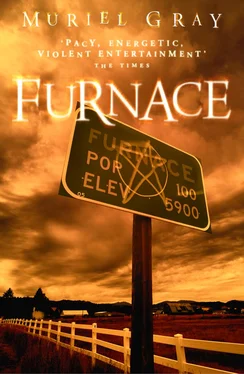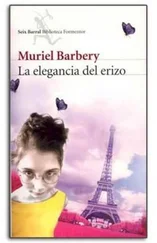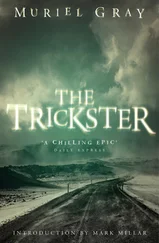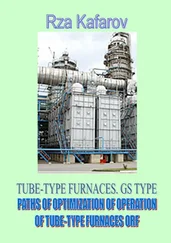1 ...7 8 9 11 12 13 ...21 At least he had until one searingly hot August. Josh was eleven and the day had been long and empty. His mother’s return from her job at a drug factory, moving piles of little blue and white capsules along a conveyor belt all day with a gloved hand, had been a cranky and irritable one. Particularly since she discovered that neither Dean nor Josh had made any attempt to prepare supper, but had instead been throwing stones up at the remains of an old weathervane that clung to a neighbour’s roof, in a contest to free it finally from its rusting bracket.
Joyce Spiller had sat down heavily on the three car tyres piled by the back door they used as a seat, and glared at the boys, but particularly Josh, with tired, rheumy eyes. Her voice was full of sarcastic venom.
‘Sure do appreciate you workin’ all day long, Mom. So to thank you for that act of kindness, please accept this cool glass of lemonade and a big juicy sandwich that me an’ my shit-for-manners brother have had all friggin’ day to prepare.’
Dean had blinked at his boots in shame, but for some reason, looking at this woman in her short nylon workcoat, her thin brown hair tied back with a plain elastic band, and her face that looked ten years older than her numerical age, Josh had suddenly despised her. Why should he look after her, when other kids got to come home from school and be met by a Mom who’d fetch them lemonade and a sandwich? What kind of a raw deal was this, having a mother who worked all day, sometimes nights too, who was always in a foul mood and looked like shit? The absence of a father, a taboo subject in the Spiller house, was bad enough, but the fact that they lived in this shambolic house and never went on vacation was all this failure of a woman’s fault.
Josh had stared back at her with contempt and then run from the yard out into the street.
He thanked God that until her dying day, his mother had taken that action for a show of shame and remorse. It was anything but. He’d seen the Tanner’s ice cream sign slowly rotating in the searing hot breeze and had headed straight for the leafy calm of Carnegie, where the people lived who knew how to treat their children. Maybe if he stopped and spoke to a kid up there, they might get friendly and he’d be asked in. He’d often thought of it. That day he decided he would make it a reality. Then she’d see. She’d come home and he’d be in one of those yards drinking Coke with new friends, who had stuff like basketball nets stuck to their walls and blue plastic-walled swimming pools you climbed into from a ladder. There’d be no more kicking around in a dusty yard with nothing to do except scrap with Dean and wait for a worn-out mother to come home and cuss at them.
He ran as far as the sign, then slowed up and turned into the shimmering street with a casual step. The sign had been making a wailing forlorn sound, a kind of whea eee, whea eee like some forest animal’s young looking for its parent. Josh strolled into the splendour of the street and walked slowly, gazing up at the grand houses, smelling the blooms from their gardens. There had been nobody about except for one man who was rooting around in the trunk of a car parked out front.
Josh got ready to say hello as he approached, but on catching sight of him the man straightened up with legs apart, putting his hands on his hips in the manner of a Marine drill sergeant expecting trouble.
He stood like that, staring directly and aggressively at Josh, never taking his eyes from the small boy until he walked by. Josh had felt his cheeks burn.
It was then that he had noticed the sounds. Just background noises at first, but with the blood already beating in his ears, they grew louder and louder until they were roaring in his head.
Lawnmowers buzzing, children shouting and laughing, garden shears snapping, an adult voice calling out, the echoing, plastic sound of a ball bouncing on a hard surface. All these sounds were being made by a ghostly and invisible army of people cruelly hidden from view. And ever present, weaving in and out of these taunting, nightmarish sounds was the whea eee, whea eee of the Tanner ice cream sign. Josh had been paralysed by a sense of desolation that made his bones cold in the thick heat.
The wall of expensive stone that was separating him from these invisible, comfortable, happy people was suddenly grotesque instead of glamorous, an obstacle that could never be negotiated if you were Josh Spiller from Hove Avenue. He had slapped his hands uselessly to his ears, turned and run back the way he had come, fuelling, no doubt, the fears of the man by his car that this was a Hove boy up to no good. Every hot step of the way home the ice cream sign’s wail followed him like a lost spirit, as though it were an alarm he had tripped when he stepped from his world into the forbidden one of his betters.
His mother had welcomed him back with a silent supper of fries and ham, but he could tell by the softness in her eyes she was relieved to see him. Josh knew then how much he loved her. He also knew that no matter how agreeable a house he might eventually buy as an adult, how comfortable an existence he might make for himself, he would always butt up against the corner of a forbidden street, the edge of something better to which he had no access. Maybe that was why he had turned trucker. No one can judge what a man does or doesn’t have if he’s always on the move. The eighteen wheels you lived on were the ultimate democracy. An owner-operator might be up to his neck in debt with his one rig, or it might be one rig out of a fleet of twenty. No one knows if the guy’s rich or poor and no one cares. The questions one trucker asks another are: where you going, where you from, what you hauling, how many cents per mile you get on that load?
No one would ever ask what street you lived on and give you a sidelong glance if it happened to be the wrong one. Josh hadn’t thought about that dumb incident for years, but here, faced with these attractive houses in this small mountain town, he could almost hear the ice cream sign howling forlornly again. It was crazy. He’d grown into a man to whom material possessions meant little or nothing, and yet here he was being infected by that old feeling of desire and denial that he thought he’d shaken off before he’d even grown a pubic hair. And all because a town looked a little neater, a little smugger, a little more affluent than he’d expected. Okay. A lot more affluent.
Josh shook his shoulders, suppressed his discomfort at the memory as he approached the town’s first set of lights, and scanned the side streets for a sign of something that might suggest food. The truck’s brakes hissed, he leaned forward on the wheel and looked around.
If Furnace had a commercial centre then this was probably it. The wide street that cut across this one was lined on both sides with small shops and offices, buildings that were as well presented as those belonging to their potential customers. There was a cheerful bar on one corner, featuring long, plant-filled windows onto the street, far removed from the darkly terrifying drinking-holes a man could expect in the mountains, and an antique shop on the other that suggested Furnace did a fair piece of business from tourism. A complex metal tree of signs told him where the best Appalachian wine could be bought, provided directions to a children’s farm where the animals could be petted, and reminded you that the world-famous sulphur caves were now a mere fourteen miles away. Josh conceded that bored families in camper vans might tip a few dimes into the town’s economy every summer, but even if they loaded up with Appalachian wine till it broke their axles and petted the farm animals bald, it still wouldn’t account for the prosperity of the town. He mused on the mystery of it, and settled with reckoning there must be a whole heap of prime farmland groaning with fat cattle hiding way back here that was keeping these people in new cars and white colonnaded porches. But if that was the case, they were keeping it well hidden. And although the mountain forest came so close to the edge of the town it made Furnace look little more than a fire-break, what the hell: it was a theory. It made Josh more comfortable to invent a logical and soil-based reason, stalling that tiny and rare niggle of envy he was feeling. He never envied farmers. Being tied to the land was just about the worst thing you could be.
Читать дальше












